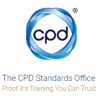
Digital skills for the workplace
Digital skills are now becoming a requirement for different types of jobs. Find out what the most in-demand digital skills for work currently are.
07 December 2021
Almost every workplace requires a level of digital skills – from being able to send emails, to using complicated software to perform your job. It’s more important than ever before to ensure you have relevant digital skills in the workplace.
Digital skills are considered to be so important, that in 2019, the UK government introduced national standards for essential digital skills to support adults across the UK, including: communicating, problem solving and online safety to help not only with their personal lives, but in their workplaces too.

Digital skills for work
Digital skills in the workplace can help with many different parts of the day-to-day running of a business, including helping staff communicate more effectively and efficiently, keep it compliant with rules and regulations required by law, and also to help the business grow and make money.
There are lots of different types of digital skills found in the workplace. Some you might be more familiar with than others, and you might even have some of these digital skills without realising it. Here are some of the most in-demand digital skills required in the workplace:
- Internet literacy
- Cyber security
- Digital communication
- Storing and managing data
- Digital business analysis
- Digital project management
- Digital marketing
Depending on your role, you may not be aware of all the different ways digital skills can help, so let’s take a closer look at what each of these actually involve, how they’re evolving, and how you could learn more.

1. Internet Literacy
Using the internet in the workplace might not be something you do regularly, but it can be a really helpful tool for getting certain things done. Using the internet can help you fact-check statistics for articles you might be writing, or you might find a video tutorial to help you complete the task you’ve been set on your own.
Using the internet might be part of your role, so if you’re going to be going online it’s important that you know how to use it effectively and safely. Learn how to browse safely with this Digital Wings article.
Many larger businesses use something called an intranet, which is a private network that only company employees can access. It’s used in a similar way to the internet to search for internal and external information, and share important company details and announcements.
Some workplaces have terms of use in place for internet use at work, and some sites are automatically blocked, so you might need to check what you’re allowed to do in your workplace when it comes to going online.

2. Cyber Security
There are many ways that having good cyber security measures in place can benefit the workplace. Not only is it law to ensure you’re compliant with safeguarding certain data your business might be in possession of, but it also helps to keep your business details and finances safe.
There are certain types of scams that are predominantly aimed at business, including spear phishing, ransomware and CEO fraud. We explain what each of these are and other types of business fraud and scams threats in our module.
All staff in the workplace need to be aware of their role in keeping the company and themselves cyber secure, from understanding what a cyber-attack might look like, to having good habits with their digital devices and applications.
The National Cyber Security Centre (NCSC) have created resources that could help you with your organisation’s cyber security.

3. Digital Communication
From sole traders to international corporations, all businesses need to communicate with other people including co-workers, suppliers and customers. There are several different ways your workplace might use to communicate digitally which could include: email, video conferencing, and telecommunication.
Some telecommunication and video conferencing tools such as Skype, Zoom and Microsoft Teams allow multiple users to collaborate in virtual settings, allowing attendees to do things like see each other face to face, share presentations and make real-time changes to documents.
Keeping up to date with the changes in communication technology is important. Making sure everyone in the workplace knows how to use the tools available to them can help the business run more efficiently. If you’re not sure how to use any of the above mentioned types of digital communication, or you’d like to find out if you’re making the most of them, you can find out more in this Communicating online module. Sign up to Digital wings for free to get started.

4. Storing and Managing Data
It’s not uncommon for data to be created within a company. Emails containing confidential information, sales reports and copies of contracts are all examples of data that need to be kept safe. Your workplace is likely to have its own guidance around data storage, and what information can be shared, so it’s a good idea to make sure everyone who might be using digital technology in the workplace knows their responsibility when it comes to data storage and management.
Data is collected by businesses every time we interact with them, and the introduction of GDPR (General Data Protection Regulations) has made the secure collection and storage of data more important than ever.
Companies that choose to store their data in a physical site need to consider things such as; fire, flood, theft etc. Some companies don’t have a physical site to store data, so they may want to explore different ways to store and manage their data, such as cloud storage or server-based storage. Using these types of storage means that the data can be accessed from anywhere from any device that can access the internet. It’s therefore crucial that the staff accessing data files know how to do it properly.

You’ll need to make sure all data is stored where it can be quickly and easily accessed to keep the business running smoothly, and depending on the type of business you’re in, it may even be a regulatory requirement to store some of your data in a certain way. In fact, almost all businesses need to adhere to GDPR guidelines if they collect information about people for any business or other non-household purpose. You can find out more about GDPR here.
Making sure that you keep your business data safe and secure is really important. Data collected can be used to create a range of dashboards which can be analysed and used to help create strategies for making important business decisions. This data can be incredibly valuable information to cyber criminals, so it’s vital that suitable privacy settings, labelling, and password controls are applied, and that all staff have been trained to understand the types of ways cyber criminals might try to gain access to your business data.
5. Digital Business Analysis
Knowing how your business is performing is critical. Being able to analyse data from a variety of sources such as social media, sales and website activity can help a business understand areas that are performing well, and what might need attention.
Business analytics often involves the downloading of data into a format such as a spreadsheet, where it can then be interpreted by using analytic tools to help understand it.

Companies sometimes choose to outsource their analysis to third party experts, but there are lots of courses available to learn how to understand and make the most of your business data too. We’ve written a module in Digital Wings explaining ways you can utilise data.
Depending on the types of analytic tools used for the business, you can find out a wealth of information to help you understand it more. One area that’s really helpful to understand in a digital world is web analytics. Watch this short video¹ to find out how understanding web analytics can help your business:
6. Digital Project Management
Project management requires several different skills, including planning, soft skills and digital skills. Being able to use the digital skills and tools available can make project management easier.
The role of a digital project manager involves managing a digital product or project. A digital project manager is also responsible for developing and overseeing its progress from inception through to being used successfully by the intended end user.

Project managers have to be really organised, but they can get help by making use of lots of digital tools including:
- Data analytics
- Gantt charts
- Video conferencing
- Diary synchronisation
- Budget planners
- Scheduling
If you’ve never heard of a Gantt chart before, this video¹ explains what it is and why it’s so important for project managers to understand how to use them.
7. Digital Marketing
In the UK 92% of adults use the internet*, so without a web presence and digital marketing, businesses could be missing out on opportunities to build their business and brand and to engage with customers online.
With the rise of social media, and people being able to share in-the-moment experiences, word of mouth can hugely impact a business. It can also be a great way to communicate with your customers too. Done well, you can build lasting relationships with your customers through the medium of digital marketing and social selling.
There’s much more to digital marketing than having a website and social media presence though, being able to understand the data gathered from people visiting your digital platforms, and how to implement changes and updates will make the user experience (UX) much better for your customers. Take a look at this Digital Wings module to find out more.
The skills a digital marketer might need to know are varied, watch this video to find out what you might be expected to do in the role:
* Source: Office for National Statistics Internet users, UK: 2020
Keep developing your skills
Whatever your digital skill level is, you can always build on it. If you want to learn more about any of these skills, why not have a chat with your boss or Human Resources department. If there’s someone in your workplace who’s doing a digital job that you’d like to know more about, why not ask them if you could shadow them, or if they could become your work mentor.

There are lots of online learning courses that you could take to help you develop your skills. Why not register for free to Digital Wings, to gain access to a range of digital learning?
Register for Digital Wings for free.
¹The content in these videos is independent and is neither affiliated with, nor authorised, sponsored, created or approved by Barclays. All trademarks are the property of their respective owners. There are other services available and Barclays does not specifically endorse or recommend the use of any services mentioned in this video.

